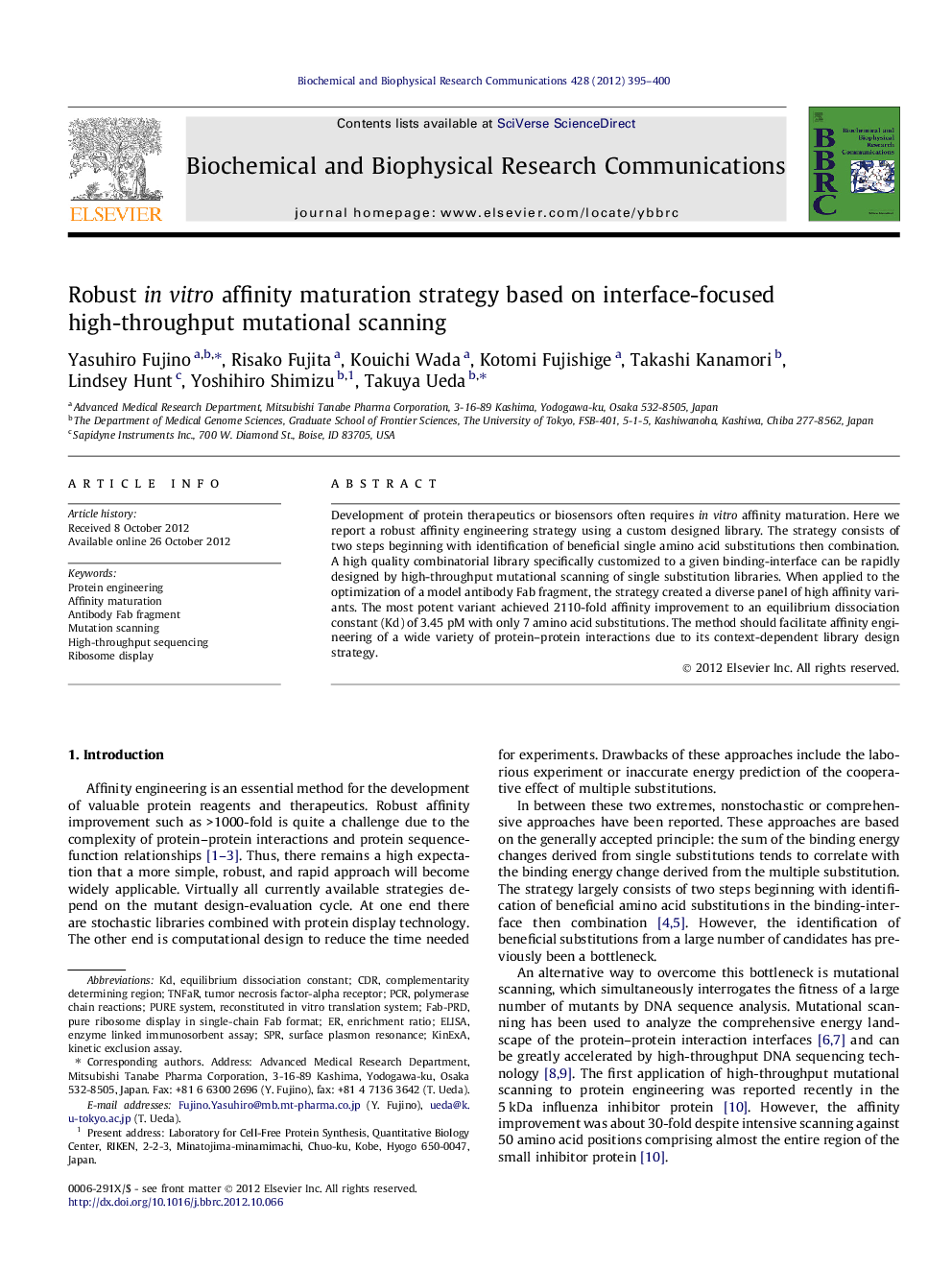| کد مقاله | کد نشریه | سال انتشار | مقاله انگلیسی | نسخه تمام متن |
|---|---|---|---|---|
| 1929174 | 1050447 | 2012 | 6 صفحه PDF | دانلود رایگان |

Development of protein therapeutics or biosensors often requires in vitro affinity maturation. Here we report a robust affinity engineering strategy using a custom designed library. The strategy consists of two steps beginning with identification of beneficial single amino acid substitutions then combination. A high quality combinatorial library specifically customized to a given binding-interface can be rapidly designed by high-throughput mutational scanning of single substitution libraries. When applied to the optimization of a model antibody Fab fragment, the strategy created a diverse panel of high affinity variants. The most potent variant achieved 2110-fold affinity improvement to an equilibrium dissociation constant (Kd) of 3.45 pM with only 7 amino acid substitutions. The method should facilitate affinity engineering of a wide variety of protein–protein interactions due to its context-dependent library design strategy.
Figure optionsDownload as PowerPoint slideHighlights
► A robust in vitro affinity maturation strategy for antibody Fab fragment was developed.
► Mutational scanning can identify beneficial substitutions for affinity improvement.
► The combination of these beneficial substitutions results in a high quality library.
► The most potent variant achieved >2000-fold affinity improvement.
► The library selection was performed by pure ribosome display in single-chain Fab format.
Journal: Biochemical and Biophysical Research Communications - Volume 428, Issue 3, 23 November 2012, Pages 395–400